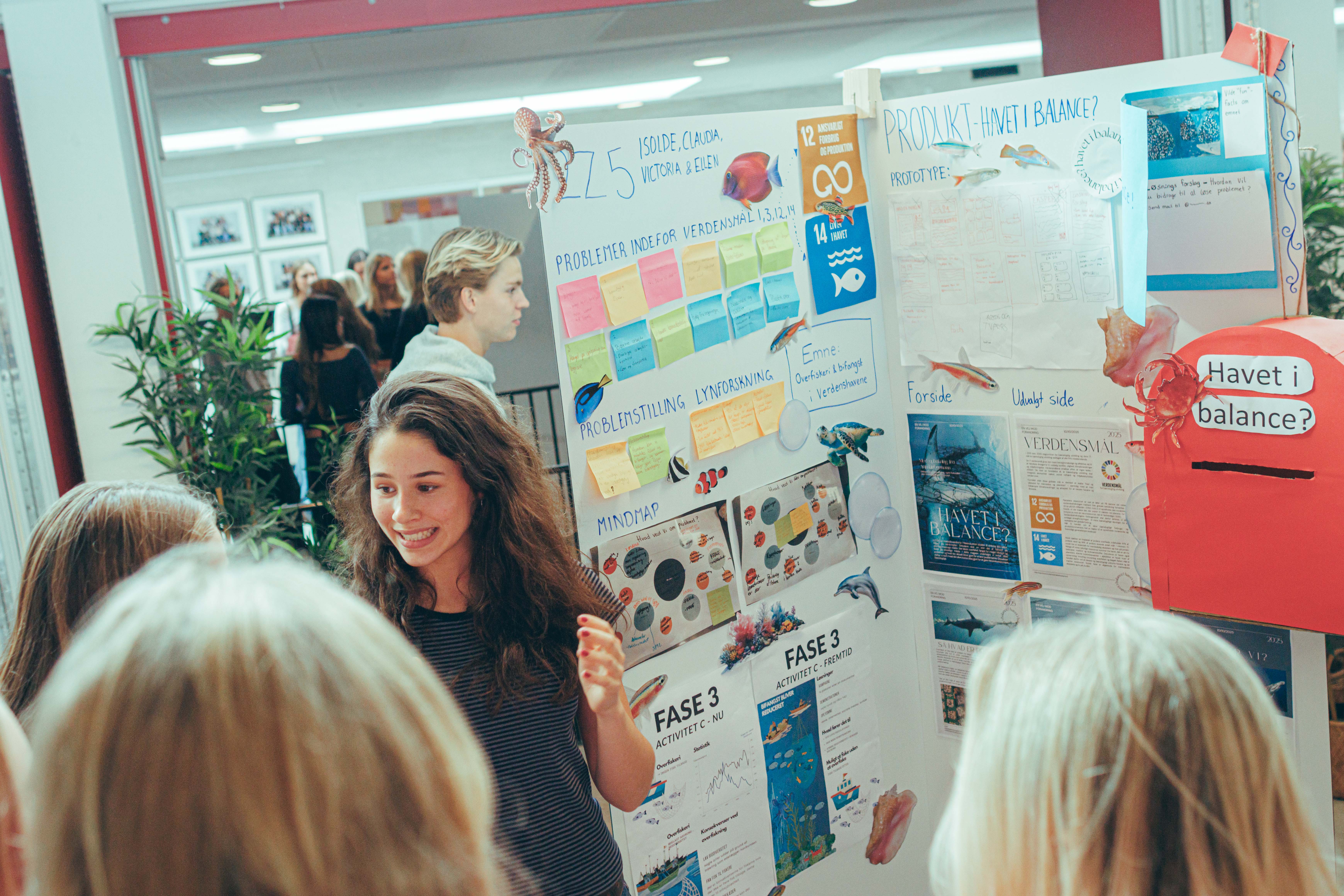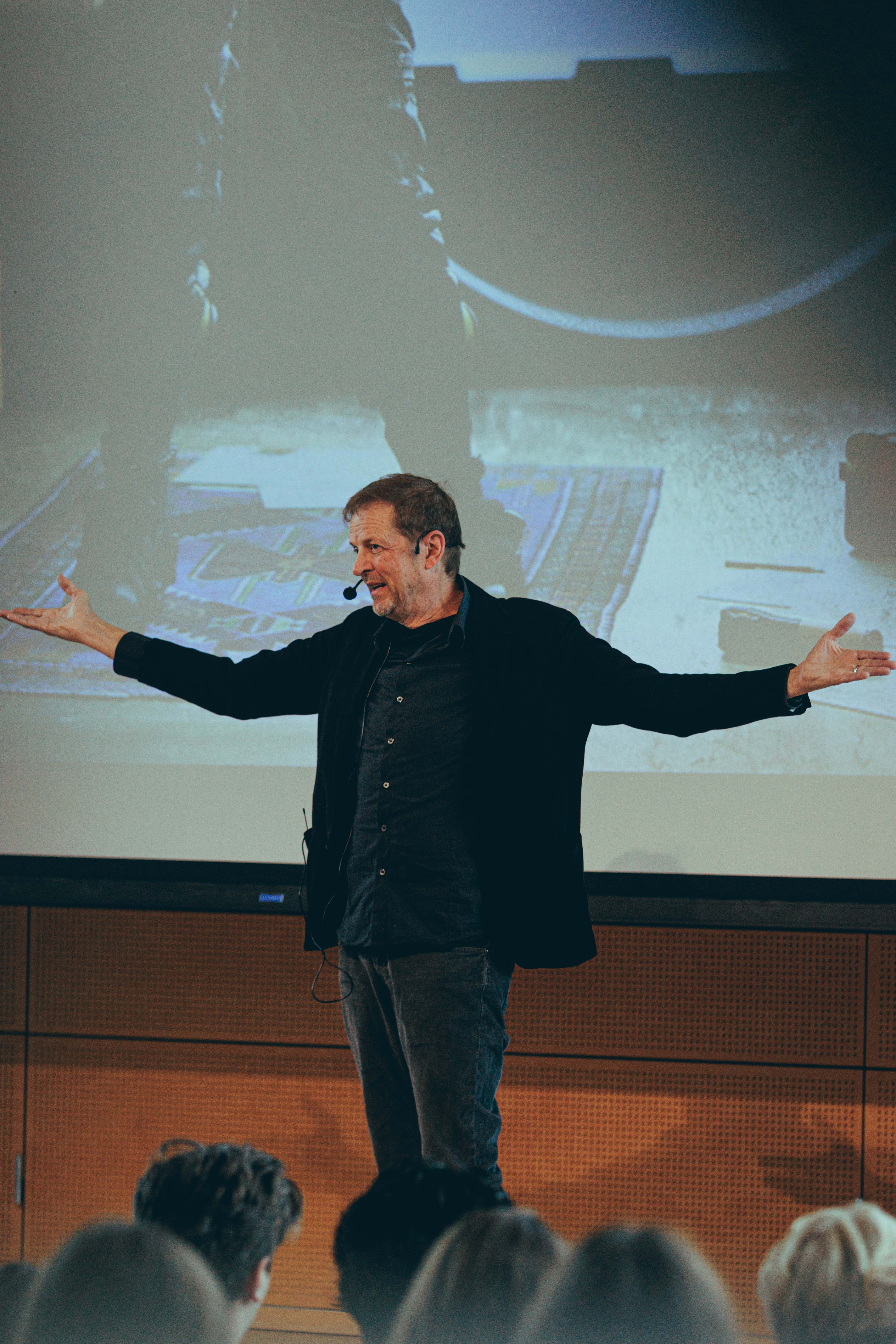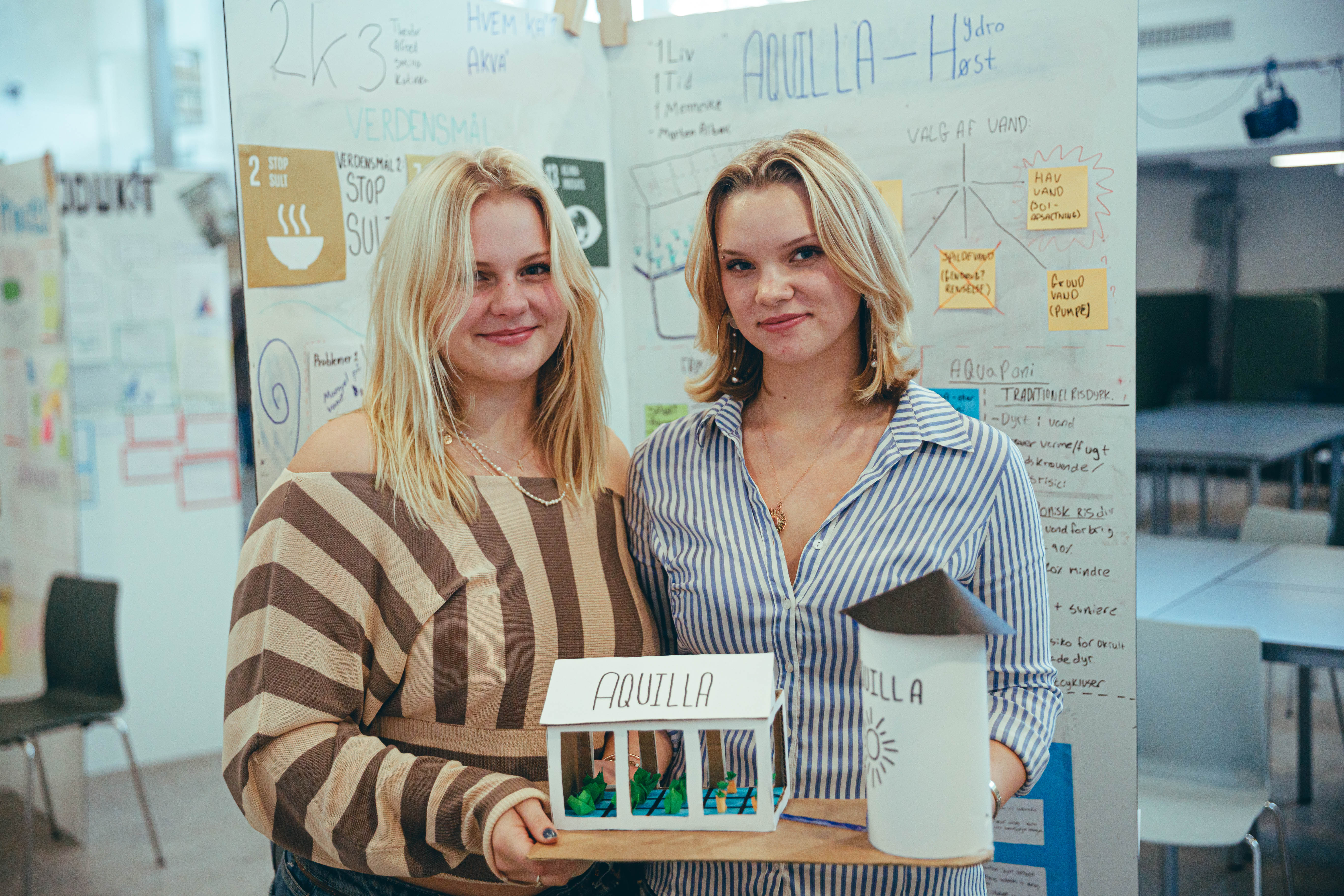First, we must believe that we can change the world!
Global Goals 2025 at Birkerød Gymnasium. To teach students that they can indeed make a difference and leave their mark on the world, Birkerød Gymnasium, in collaboration with the Foundation for Entrepreneurship and the Red Cross, will focus on storytelling, innovation, and entrepreneurship during week 41. The starting point is the UN's 17 Sustainable Development Goals.
At BG, we have developed a Global Goals concept where students apply and develop their academic skills from high school and their intuitive innovative and entrepreneurial abilities to work with the Sustainable Development Goals. The Global Goals week focuses on the STX curriculum's requirements for education in sustainability, innovation, and entrepreneurship and includes challenges along the way. Students must, among other things, develop ideas based on at least two of the Sustainable Development Goals.

New this year, students will use storytelling as a tool to create a narrative and vision for a better future world. This will be highlighted by the week's keynote speaker, Christian Faber. According to Christian Faber, we first need to create a new story about how we can actually create a better world individually, as a society, and as humanity.
"In the future, creativity will be our most important human superpower, and it must be trained and used like a muscle."

After many years in the advertising industry, Christian Faber now uses his creativity on Rebel Nature, a project at the intersection of entertainment and education. The purpose of Rebel Nature is to redefine how, by creating new stories about our future, we can inspire new generations to take action and engage with the global goals.
The students' final product in Global Goals should be a model, an idea, a concept, or a product that shows "how a problem within the Sustainable Development Goals can be solved" – and thus help make the world more sustainable and a better place to be!

The structure of the week is based on the Foundation for Entrepreneurship's 7-phase model. This means that students go through all seven phases during the week, a kind of wave model where they alternately use their individual skills and their collaboration abilities. They switch between research, immersion, and 'hands-on' activities. There is a teacher advisor for each class who helps students facilitate the process and with the challenges they will undoubtedly encounter. Idea development, and especially bringing an idea to life, is challenging, which several of the week's speakers will also address.
Most of the innovative process lies with the students. They must come up with an idea, contact external experts, and find creative solutions to their problem. The week kicks off with inspirational talks from ten different entrepreneurs and innovators from various fields, including commercial companies, socio-economic enterprises focusing on volunteerism and social engagement, and activist organizations – all with a foundation in sustainable development and the Sustainable Development Goals.
The speakers' task is to inspire students with stories, challenges, and the joy of being 'masters of their own entrepreneurship.' It has been important for us that the project is locally anchored in collaboration with Rudersdal, so students experience that sustainability, innovation, and entrepreneurship are realistic and relevant to the academic skills they encounter in high school.
The week concludes with an innovation fair where all groups present their idea, their process, and their concept to the rest of the school and a jury. The winners will advance to the Foundation for Entrepreneurship's subsequent competitions in the COMPANY PROGRAMME.
Global Goals Partners and Speakers: Foundation for Entrepreneurship, Red Cross, WaveBorn Aps, Oase app, TechWolver, For Chris, CyclingWithoutAge, Gadens Stemmer, Xtinction Rebellion, Flowering Denmark, I Love Global Goals, Andel Energi, and Rudersdal Municipality.